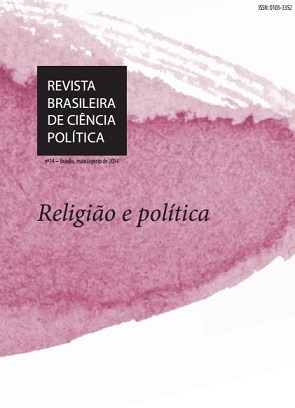O episcopado argentino e o sindicalismo em tempos de crise econômica e retorno da democracia (1983-1989)
Resumo
Resumo
O objetivo deste artigo é analisar as intervenções da Conferência Episcopal Argentina nos conflitos protagonizados pelos sindicatos e pelo governo nacional entre o final da ditadura (1976-1983) e a crise hiperinflacionária de 1989. Defende-se que o Episcopado procurou consolidar uma posição de proeminência na configuração política sendo intermediário entre os atores em disputa. Contudo, a legitimação da CEA nesse papel foi posta em risco pelas aproximações com certos atores ”“ o que negava sua declarada prescindência política ”“ e por ter assumido uma atitude de oposição ao governo em momentos em que se presumia que suas decisões estavam dirigidas a reduzir a presença social e política da Igreja.
Palavras-chave: Igreja Católica argentina; sindicalismo; governo; democracia.
Abstract
The aim of this paper is to analyze interventions by the Argentinean Episcopal Conference (CEA) in disputes between Unions and the national government between the end of the dictatorship (1976-1983) and the 1989 hyperinflationary crisis. It is argued that the bishops sought to consolidate a position of preeminence in the political configuration by mediating between conflicting actors. However, the legitimacy of the CEA in that role was endangered by its closeness to some of the actors ”“ which denied its declared political detachment ”“ and by its oppositional attitude towards the government at a time when it was assumed that its decisions were aimed at reducing the Church’s social and political presence.
Keywords: Argentine Catholic Church; Unionism; government; democracy.


